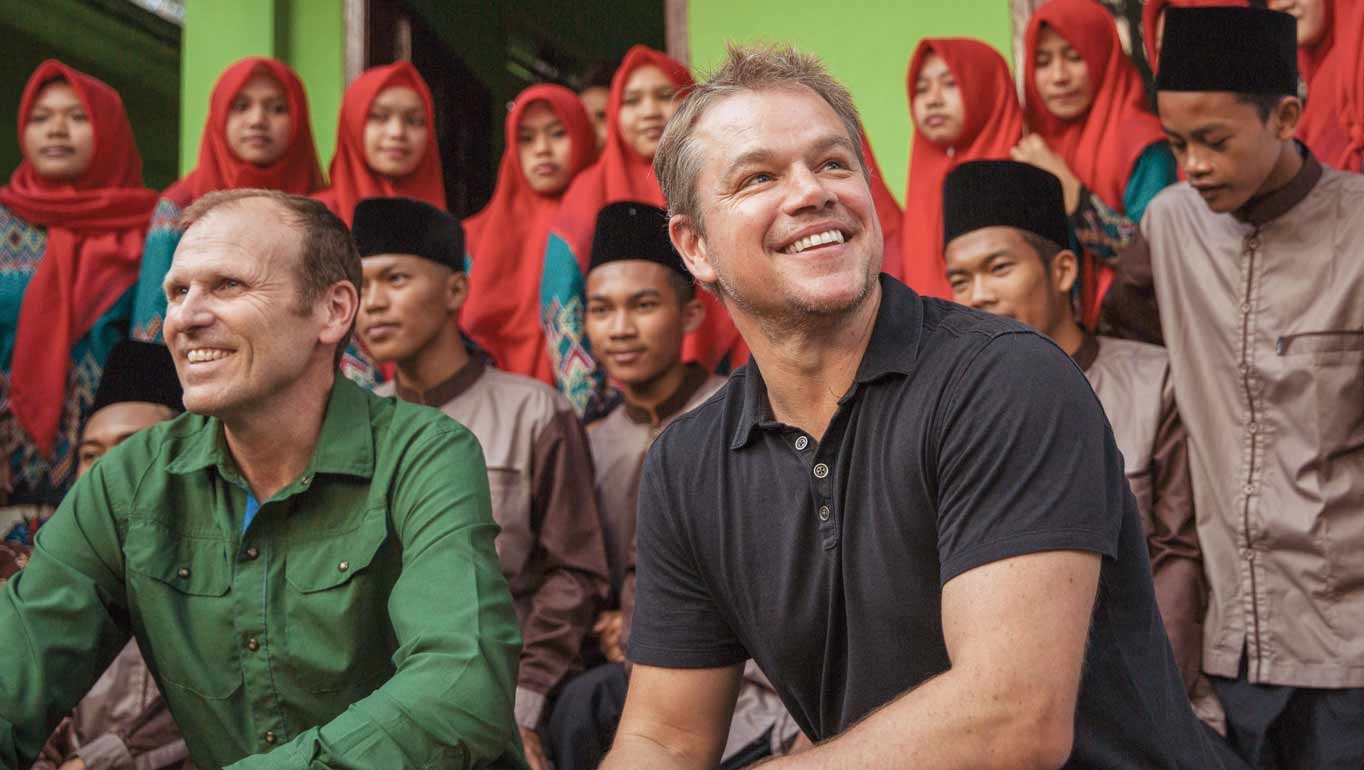Technically, water is said to be a resource with an inelastic demand — it has no close substitutes. Similar is the case with air, with the difference that very few people suffer from lack of air while many suffer from lack of water — clean water. So two people with a recognized track record both joined forces to address this lack and facilitate access to the first resource, water. They put together a team that is generating tangible, concrete, measurable results. The kind of results that are sorely needed. Let’s get into the Water.org kitchen.
Matt, why did you choose to raise awareness regarding the water crisis over other issuesthat clearly exist in societies?
I was really interested in issues of extreme poverty, and I started to study them more seriously. I went on a trip that was arranged for me by DATA, which is a nonprofit Bono founded. It was like a college mini-course in that every day had a different learning focus. I was shocked at how water underpinned everything – all of the issues of extreme poverty.
Nobody in the West could really relate to it, because for us, we’re always a few steps away from a safe drink of water. And yet people were dying of entirely preventable diseases because they lacked access to safe water and sanitation. I found that staggering. As I engaged with the issue, I found it interesting, complex and fundamental.
The very first water collection I ever joined 15 or so years ago was with a young girl in rural Zambia. We walked a mile from her house to collect this water. It was just the two of us with the translator. Through the course of our conversation, I asked her if she was going to live in this village for the rest of her life. She told me she was going to go to Lusaka, and she was going to be a nurse. And she had all these great dreams and plans. And it reminded me of how I was when Ben Affleck and I were 14.
We were going to go to the big city of New York, and we were going to be actors. And that’s exactly what a teenager should be doing, right? Thinking about what their life might be and this world of possibility in front of you. And it wasn’t until I left this young girl that I realized: had someone not had the foresight to sink the bore well a mile from her house, she would be spending her entire day searching for water and collecting water for her family. She wouldn’t be in school, where she could work toward her hopes and dreams.
Gary, you began your first undergraduate degree in 1985 and by 1990 you had founded WaterPartners, your pre-Water.org organization. At that time water was not a priority. What changed your mind?
I was in the slums of Guatemala City during my first college volunteer trip, where I saw a young girl, maybe five or six years old, filling a bucket from a filthy barrel of water. Her bucket must have weighed almost as much as she did. She heaved it up, put it on her head, and teetered home along a stream of sewage. I wanted to free her from that heavy load, as anyone would; I wanted to find a way to communicate that this water could make her sick or even kill her. But I couldn’t. My Spanish at that point was too poor to explain the risk. And in any case, this was the only water available to her. It was sad. It was tragic. It was an injustice— a word I knew to not use lightly.
In that moment in Guatemala City, I understood something that before I had only studied, had only known in the abstract: that for billions of people like this young girl, every day is a struggle to meet their most basic needs. For them, making sure that their families have water to drink and food to eat and a safe place to sleep takes so much of their energy and resources that they have nothing left to invest in their own future. This means generations of people, through no fault of their own, stay trapped in an endless cycle. I realized in that moment the world doesn’t have to be this way and I dedicated my life to help change it.
Matt, through your influence as an actor, you can bring your message to a global audience. What would this message be and to whom?
I think a lot of people believe problems like the water crisis are so big that they’re permanent parts of life on this planet. The single most important thing I want them to take away from this message is the crisis is solvable. Not “hopefully, eventually, theoretically” solvable, but right here, right now. So many great global challenges are more solvable than we think—if we seek to empower the people who are facing those challenges and who have great capacity to solve them.
Gary, what kind of obstacles have you encountered over the years that prevent the quick implementation of clean water solutions?
At the heart of the water crisis is a giant market failure. The people in need of water and sanitation already put significant resources into the system to solve the crisis. Many are forced to use short-term, stop-gap, dead-end solutions like buying contaminated water from trucks, or paying a fee every time they use a toilet.
When people in poverty can access the upfront money to pay for long-term solutions like a utility hookup or a rainwater harvesting tank and pump, they have the chance to invest in their futures. That’s the key to ending the crisis quickly: building the financial plumbing to get the money flowing where it needs to go. And that’s the core idea that Water.org and WaterEquity bring to their work together.



